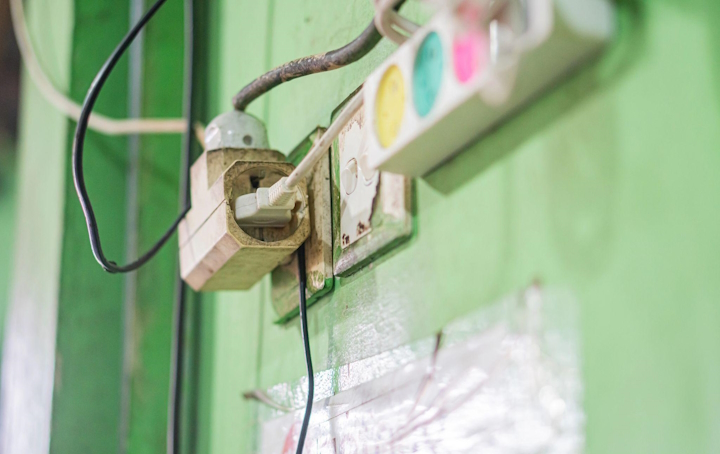
Electrical rewiring involves replacing outdated or damaged electrical systems in a home to improve safety and functionality. It's a critical aspect of maintaining a safe living environment because faulty wiring can lead to serious hazards. Homes may need rewiring due to aging infrastructure, compliance with modern safety standards, or to enhance electrical performance. Knowing the signs that indicate the need for a professional assessment can help prevent these potential hazards and ensure your home is safe and up to date.
Understanding the Age of Your Wiring System
The age of your home plays a significant role in determining whether it needs rewiring. Many older homes, particularly those built before the 1980s, often use wiring systems that are not designed to handle the electrical demands of modern lifestyles. Common outdated wiring systems include knob-and-tube wiring and aluminum wiring.
Knob-and-tube wiring, prevalent in homes built before the 1950s, lacks the necessary grounding that modern electrical systems provide. This feature not only increases the risk of electrical shocks but also makes the system more susceptible to overheating and fires. Aluminum wiring, used in the 1960s and 1970s, tends to degrade and expand over time, leading to loose connections that can be hazardous.
Moreover, older wiring systems often fall short of current electrical codes and safety standards. Regular electrical inspections are crucial for older homes to identify potential risks and ensure the wiring system meets current safety regulations. If the home hasn’t undergone a thorough electrical inspection in the last decade, it’s wise to schedule one to assess its condition.
Signs of Electrical Problems in Your Home
Several signs may indicate an issue with your home's electrical wiring. Flickering or dimming lights when using multiple appliances often signal that the wiring cannot handle the electrical load. This issue can be more than a minor inconvenience; it suggests that the wiring could be strained, leading to potential hazards.
Frequent circuit breaker trips or blown fuses are another common sign. Circuit breakers are designed to shut off electricity when they detect an overload, preventing electrical fires. If breakers are tripping more often than usual, it may indicate that the wiring can’t support your home's electrical needs.
Warm or discoloured wall plates and outlets signal an overheating problem. Overheating can be a precursor to electrical fires, as it indicates that too much current is flowing through the wires. The presence of burning smells or odd odours from electrical sources is an immediate red flag. These smells often indicate overheated wiring or electrical components, which can quickly become a fire hazard.
Safety Concerns and Risks of Outdated Wiring
Outdated wiring poses several safety concerns, primarily the increased risk of electrical fires. Worn insulation and outdated components can lead to overheating and, eventually, fires. Electrical shocks or electrocution are other serious risks associated with faulty wiring. Without proper insulation and grounding, anyone coming into contact with a live wire could suffer severe injuries.
Overloaded circuits present a significant danger. Older wiring systems weren’t designed to handle the number and wattage of modern appliances. Overloaded circuits can overheat and cause fires. Grounding is critical for electrical systems, as it provides a path for electricity to safely return to the ground in case of a fault. Homes with ungrounded systems are at increased risk of electrical shocks and fires, making it essential to upgrade to modern, grounded wiring.
Benefits of Upgrading Your Home's Wiring
Rewiring your home offers numerous benefits. Primarily, it enhances safety by reducing the risks of electrical fires and shocks. Modern wiring systems are designed to handle higher electrical loads and feature more robust insulation and grounding.
Improved electrical performance and capacity are other advantages. Upgrading enables your home to support the demands of modern appliances and electronic devices without overloading circuits. It also helps eliminate issues like flickering lights and frequent breaker trips, providing a more stable and reliable electrical system.
An updated electrical system can increase your home's value and appeal to potential buyers. Prospective buyers are often cautious about purchasing homes with outdated wiring due to the associated risks and potential costs. Finally, upgrading to more efficient and reliable electrical systems can lead to potential energy savings. Modern wiring and electrical components are designed to be more energy-efficient, reducing your home's overall energy consumption and costs.
Steps to Take if You Suspect Your Home Needs Rewiring
If you suspect your home requires rewiring, the first step is to contact a licensed electrician for a thorough inspection and assessment. A professional can identify any immediate safety concerns and suggest temporary solutions to mitigate risks until the rewiring is complete.
Discuss the electrician's findings and recommendations, and obtain multiple quotes to ensure you get the best value for the work. Planning and budgeting for the rewiring project is essential, as it can be a significant investment. Consider potential disruptions, such as the need to move furniture or temporarily relocate during the work.
Conclusion
Recognising the signs that your home may need electrical rewiring is crucial for maintaining a safe and functional living environment. By addressing issues like outdated wiring, frequent circuit breaker trips, and discoloured outlets, homeowners can prevent potential hazards such as electrical fires and shocks. Upgrading your home's wiring system not only enhances safety but also improves electrical performance, increases home value, and offers potential energy savings. Taking proactive steps, such as consulting with a professional electrician for an inspection, can provide long-term peace of mind and ensure your home remains a safe haven. And don't forget to consider additional precautions with power outage safety tips to complement your rewired electrical system.
| < Prev | Next > |
|---|




